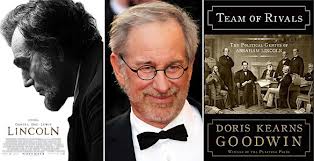By Umapagan Ampikaipakan (01-08-13) | interesting.times@mac.com
The 13 th Amendment to the US Consitution
Section 1. Neither slavery nor involuntary servitude, except as a punishment for crime whereof the party shall have been duly convicted, shall exist within the United States, or any place subject to their jurisdiction.
Section 2. Congress shall have power to enforce this article by appropriate legislation.

IT’S ABOUT PERSONALITY: Lincoln’s moral courage to stand by his convictions can provide some inspiration for modern politics
THERE is a wonderful line from the movie Lincoln — Steven Spielberg’s marvellous new meditation on the events surrounding the abolishment of slavery — when Thaddeus Stevens, a Pennsylvania Republican, hands his housekeeper (and supposed common-law wife) the actual piece of paper containing the 13th Amendment to the United States Constitution and says: “The greatest measure of the 19th century was passed by corruption, aided and abetted by the purest man in America.”
And it was. Both Stevens’ appraisal of Lincoln’s character as well as his recognition of the importance of the 13th Amendment. It may sound simplistic, but the story of Abraham Lincoln’s presidency, the abolition of slavery, and the eventual end of the civil war, while undeniably complex and highly nuanced, can be boiled down to the integrity and strength of personality of one man.
The question of character is something altogether indispensable in modern politics. And it goes beyond mere issues of morality. Character in politics is about having the ability to not buckle when faced with overwhelming anxiety.
It is about having both the will and the way to accomplish your goals, even in the face of the most crippling challenges and setbacks, even in the face of the most heated opposition.
It is something that Spielberg makes a point to emphasise in his version of Lincoln’s story. In this particular retelling, we see the Great Emancipator as larger than life, as a man before which others were destined to cower. He is painted as possessing unsurpassed oratory skills, as a shrewd manager of men, and as having moral courage to stand by his convictions.
In her political biography of Lincoln, the book which this movie is based on, Doris Kearns Goodwin writes: “Washington was a typical American. Napoleon was a typical Frenchman, but Lincoln was a humanitarian as broad as the world. He was bigger than his country — bigger than all the Presidents together.”
“We are still too near to his greatness,” Tolstoy concluded, “but after a few centuries more our posterity will find him considerably bigger than we do. His genius is still too strong and powerful for the common understanding, just as the sun is too hot when its light beams directly on us”
Spielberg builds on that notion and depicts Lincoln as a true political hero. It is something that takes a while to get used to. It takes a while to reconcile the idea of politics and heroes. Especially in this day and age, when the notion of statesmanship is often met with suspicion and disbelief.
There is a cynicism towards politics and politicians, towards government and its propensity for good, that is pervasive. So much so that it makes one wonder about the possibility of a modern-day Lincoln. It makes one wonder if such heroes are even likely let alone necessary. Or whether such things — and such people — are merely improbable notions rooted in some misplaced nostalgia for the past?
If this movie has any message at all, it is that for politics to work, it needs that one good man. Not to stand alone and above the fray but to be a part of it instead and to somehow endure. Be it with moral courage, or with political savvy, or with sheer grit.
That for politics to work, it needs someone so steadfast with purpose that he would inspire even those in opposition to overcome their petty rivalries. “Unhappy is the land without a hero.” Unhappy are the people who are unable to be inspired. For how else are we moved to action? To get off our collective behinds and strive towards something better; towards something greater. And for that we need our heroes.
We need individuals who are able to straddle that fine line between personal principle and national interests. We need leaders with emotional balance. Who are self-aware. Who possess the ability to properly estimate the value of collective and individual happiness.
Because we need our heroes. Our day to day lives are often so mundane and so ordinary that we need to be reminded of our tremendous capacity as human beings. We need to experience the extraordinary in order to be pulled out of our languor, in order for us to ask ourselves a simple question: “Did you know we could do that?”




No comments:
Post a Comment
Note: Only a member of this blog may post a comment.